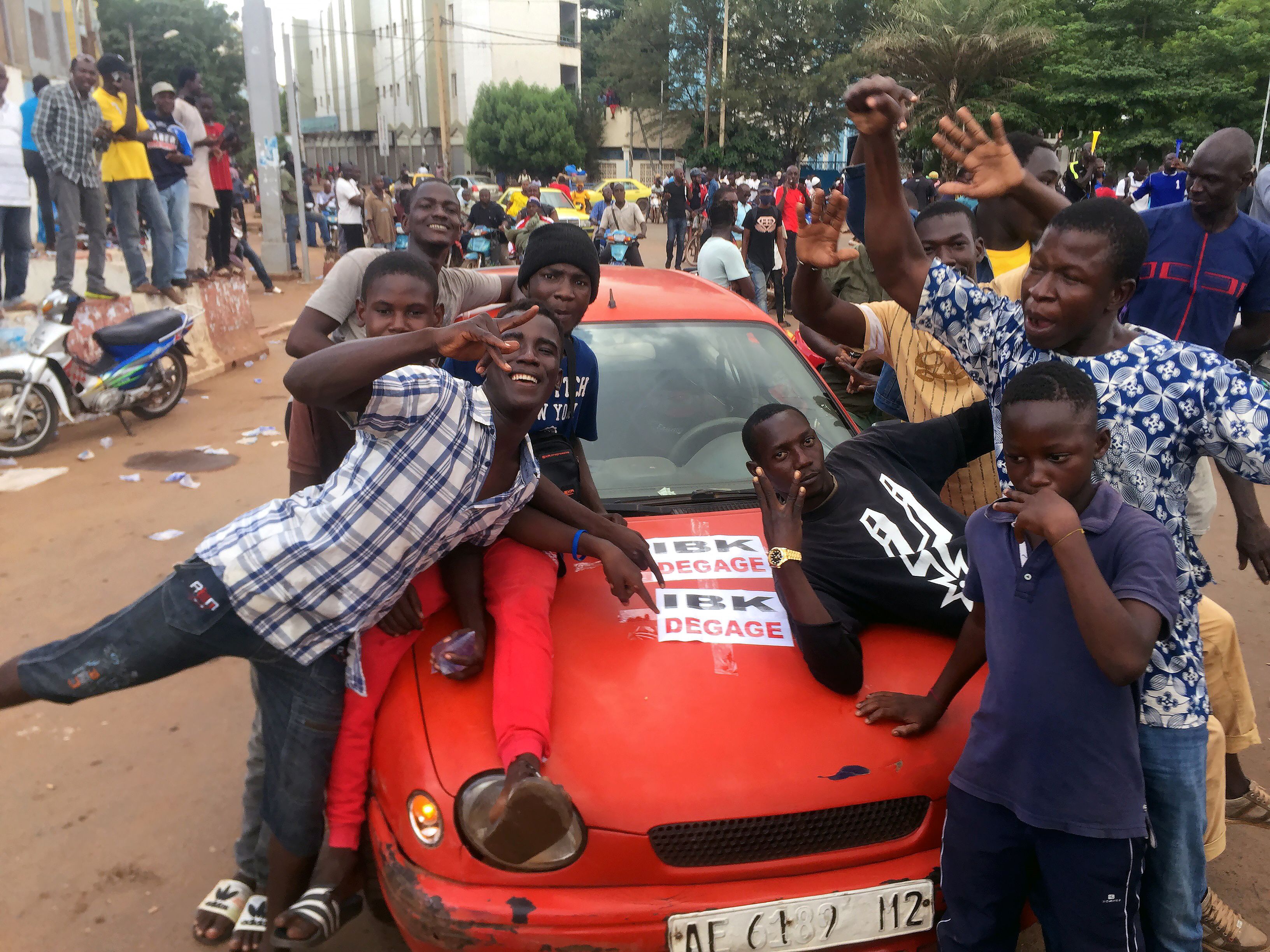Coup d’état in Mali

What is the background to the events in Mali?
Since 2017, President Keïta has struggled with the growing pressure of jihadist groups linked to Al-Qaeda and the so-called Islamic State (ISIS). The conflict that has raged in the north of the country since 2012 has spread to its centre and armed groups have consolidated and intensified attacks on civilians and government forces. The public’s frustration was compounded by the corruption of the authorities. Before the parliamentary elections in March, the opposition leader was kidnapped, and in April the Constitutional Court revised the results in order to give Keïta supporters a majority. After these events, he lost his public mandate. From June onwards, demonstrations of several thousand people took place under the patronage of the influential imam Mahmoud Dicko, who combines social conservatism with defending the specificity of West African syncretic Islam against the Gulf-originated fundamentalism. The protesters demanded the president’s resignation. Mediation by representatives of the Economic Community of West African States (ECOWAS) did not calm moods.
Who are the soldiers who carried out the attack?
The coup began on 18 August when some soldiers from the Kati military base (15 km from the capital city, Bamako) rebelled. This was the same base where the 2012 coup d’état began, followed by elections, after which Keïta ascended to power. It was led by junior officers, including Colonel Malick Diaw, deputy commandant of the base. The next day, Deputy Air Commander Colonel-Major Ismaël Wagué spoke on behalf of the National Committee for the Salvation of the People (CNSP), inviting social movements and opposition parties to participate in the process of strengthening state institutions and promising quick elections. It seems that the coup plotters’ intention is to unblock the political clinch (as in Mauritania in 2005 and Niger in 2010) and not to keep power (as in many African countries in the 1970s and 1980s).
Will the coup make the fight against jihadists more difficult?
Mali’s fight against jihadists is supported by the UN (MINUSMA, 13,000 soldiers), the EU (EUTM training mission, about 500 troops; the civilian EUCAP; and the EU and Sahel special forces mission Takuba, numbering about 300), the French mission (Barkhane, 5,100), the forces of the five Sahel countries (G5 Sahel, a total of about 5,000 troops), and smaller missions from the U.S., the UK, Germany, Belgium, and Italy. At the working level, their cooperation with the new authorities will continue without interruption. However, the coup testifies to the ineffectiveness of the investments into building a professional, politically and ethnically-neutral Malian army. The split in the military will reduce the combat capabilities of the Malian forces, and the prospects of giving them a leading role in the field will also be undermined. The expected increase in the influence of Imam Dicko, who enjoys some authority among Islamists, will make it possible to continue attempts at negotiations with the militants.
What were the reactions with the coup in Mali and abroad?
In Bamako, the appearance of the military was accompanied by demonstrations of support from the population. Imam Dicko’s supporters spoke of the relief that the military action brought. The rallies, however, were not as well-attended as the recent anti-presidential demonstrations in which participants sought a peaceful transition. The unconstitutional change of power was strongly condemned by the European Union, which cooperates with Mali in the field of migration control and other areas, and by the UN Secretary-General, China, and the U.S. The African Union (AU) suspended Mali’s membership and ECOWAS excluded the country from its decision-making bodies and ordered the remaining 14 member states to close their borders to travel to and from Mali. At the request of France, which supported Keïta, and Niger, on 19 August the crisis in Mali was discussed by the UN Security Council, which demands the release of the former president and other arrested officials.


